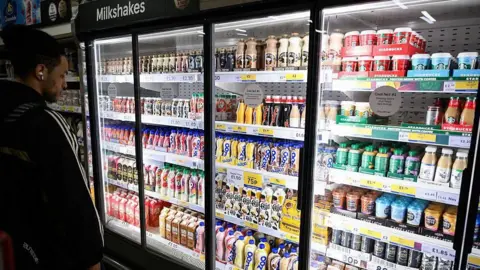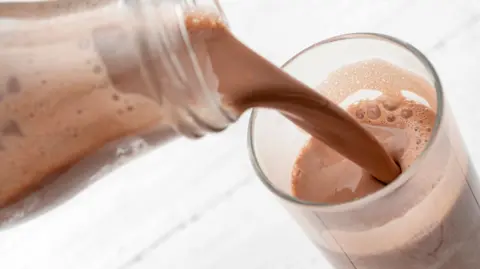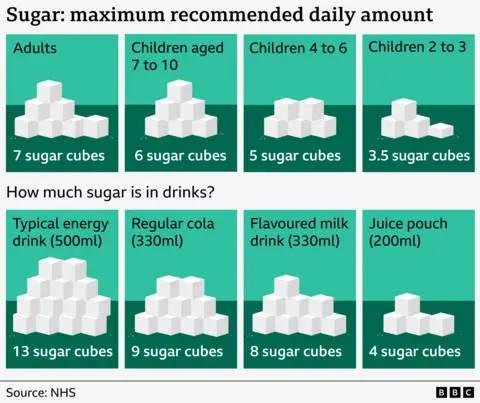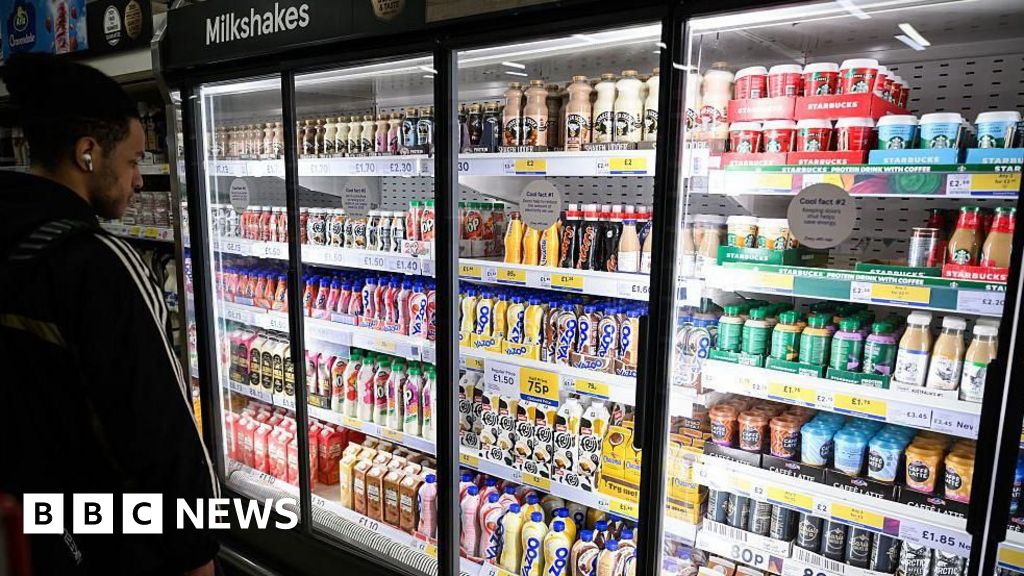 Getty Images
Getty Images
Milkshakes, coffee drinks and milk substitutes are to be included in the government’s sugar tax scheme for the first time in the UK in a renewed attempt to help tackle obesity.
The sugar tax, known formally as the soft drinks industry levy (SDIL), is a tax on pre-packaged drinks such as those sold in cans and cartons in supermarkets.
The Health and Social Care Secretary Wes Streeting announced the extension of the tax in the House of Commons on Tuesday, ahead of the budget.
How will it work?
Extending the sugar tax to milk-based drinks will happen from 1 January 2028.
The government says companies which make these drinks will have to reduce the sugar they contain or face paying the tax.
That means they could either taste different (less sugary) or cost a bit more.
The tax was introduced by the Conservative government in April 2018 as a means to make diets healthier and tackle obesity, by cutting sugar intake.
As he made the announcement, the health secretary said: “Obesity robs children of the best possible start in life, hits the poorest hardest, sets them up for a lifetime of health problems and costs the NHS billions.”
What drinks are included?
The sugar tax applies to pre-packaged soft drinks with added sugar.
It already applies to most sugary and fizzy soft drinks sold in cans, bottles and cartons in supermarkets.
It will now also apply to pre-packaged milk-based drinks with added sugar such as bottled milkshakes and coffee drinks.
It will also now cover milk substitutes – plant-based drinks like soya, oat and rice milks with added sugar.
Milk-based drinks have been exempt from the sugar tax because they contain calcium, which is encouraged in children and young people’s diets.
However, the high sugar content of some milk-based drinks means the government has removed that exemption.
The government will introduce a ‘lactose allowance’ to account for the natural sugars in the milk content of these drinks.
All milk substitute drinks, such as soya, almond or oat drinks, were previously exempt from the sugar tax if they contained 120mg of calcium per 100ml.
But if these drinks contain added sugars beyond those derived from the main ingredient, they will now be taxed.
 Getty Images
Getty Images
What drinks are not included?
The sugar tax does not apply to drinks made and served in cafés, restaurants and bars. So coffees, lattes and other milky drinks made on café premises would not come under this tax.
Soft drinks made only with natural sugars, such as plain cows’ milk and pure fruit juice, are also not part of the tax.
Unsweetened plant-based milks are also not included.
Alcohol-free beer or wine, infant formula, drinks sold as powder and cocktails or mocktails served in an open container also don’t fall within the scope of the sugar tax.
How much do companies pay?
Currently, the tax is charged at 19.4p per litre on drinks containing at least 5g of total sugar per 100ml, and 25.9p per litre on drinks with 8g of sugar or more.
But the government is bringing down the maximum amount of sugar allowed in drinks. Instead of 5g, the limit will now be 4.5g per 100ml.
What impact has the sugar tax had?
To date, it’s led to a 46% reduction in the sugar contained in soft drinks affected, the government says.
Nearly 90% of the market now contains less sugar than the level at which the tax applies.
But experts say there is still too much sugar in UK diets.
Free sugars should account for no more than 5% of daily energy intake, current UK advice says.
But the amount of sugar consumed in the UK is around double that. And obesity rates in children and adults show no signs of going down either, with nearly two-thirds of people in the UK overweight or obese.
This is what has prompted the government to carry out a review of the tax, and extend it to milk-based drinks.
How much sugar do children consume?

The average free sugar intake among children aged 1.5 to 3 years old is 45g per day (about 11 sugar cubes).
For 4-10 year olds, it’s 55g per day and for teenagers aged 11-18, it’s 70g per day (17 sugar cubes), according to the latest National Diet and Nutrition Survey.
Less than a third of children younger than three years old meet the recommended limit for free sugar intake.
Fruit juices and smoothies make up 12% of free sugars consumed by the youngest children, and 15% in the 4-10 years age group.
NHS advice says adults should have no more than 30g of free sugars a day, (equivalent to 7 sugar cubes) – and children much less (no more than 3 cubes for 2-3 year olds). There are different recommended limits for children of different ages.



Dining and Cooking